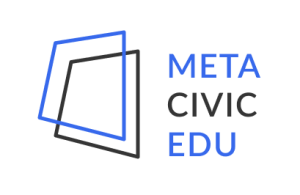Blog entry by Eummena Learn Guru

Imagine classrooms where students explore the Great Barrier Reef without leaving their desks or participate in virtual reforestation projects with peers from across the globe. This isn't science fiction—it's the potential of metaverse-based education. Recent research is uncovering how the metaverse can revolutionize learning in alignment with the UN's Sustainable Development Goals (SDGs).
Transformative Concepts:
The integration of the metaverse into civic education brings forth several transformative concepts that can enhance learning and promote sustainable development.
- Immersive Learning for SDGs:
The metaverse's capacity to create immersive simulations can transform education for SDGs. Joseph (2023) highlights its potential to bring complex sustainability challenges to life, while Rane et al. (2023) envision it as a platform for virtual field trips and experiments that would be difficult or expensive in the real world. - Quality Education for All (SDG 4):
Nilashi & Abumalloh (2023) focus on how the metaverse can democratize access to quality education. Metaverse classrooms can transcend geographical limitations, allowing students from anywhere to learn together, fostering inclusivity and equal opportunities. - Beyond Textbooks:
Azoury & Hajj (2023) emphasize the metaverse's potential to move education beyond traditional textbooks. Imagine interactive 3D models of historical events or ecosystems, fostering deeper understanding and engagement.
Essential Insights:
These essential insights highlight the significant impact of metaverse-based civic education on fostering sustainable practices and achieving the UN's SDGs.
- Promoting Sustainable Practices: Metaverse education can be a powerful tool for promoting sustainable practices and achieving the SDGs. By creating immersive learning experiences, the metaverse makes complex sustainability issues more relatable and engaging for students.
- Equitable Access to Quality Education: The metaverse offers exciting possibilities for providing equitable access to quality education, regardless of location. It can bridge the gap between different socio-economic backgrounds and geographic barriers.
- Enhanced Engagement and Understanding: Moving beyond textbooks, the metaverse allows for interactive and immersive learning experiences that can foster a deeper understanding and engagement with the subject matter.
Looking Ahead:
While the metaverse holds immense promise, there are challenges to address, such as ensuring equitable access to technology and addressing potential safety concerns. Nevertheless, this research paves the way for a future where education empowers students to become responsible global citizens and work towards a more sustainable future.
So, the next time you think about civic education, consider the possibilities of the metaverse. It's about shaping a future where active learning and sustainability go hand in hand.
Relevant Articles:
- Joseph, A. (2023). An exploratory study on metaverse and SDGs. In *How the Metaverse Will Reshape Business and Sustainability (pp. 83-93). Singapore: Springer Nature Singapore.
- Azoury, N., & Hajj, C. (2023). Perspective chapter: the metaverse for education. Higher Education-Reflections From the Field-Volume 3. IntechOpen.
- Nilashi, M., & Abumalloh, R. A. (2023). The Metaverse and Its Impacts on Sustainable Development Goals 4: Quality Education. Journal of Soft Computing and Decision Support Systems, 10(4), 1-8.
- Rane, N., Choudhary, S., & Rane, J. (2023). Metaverse as a Cutting-edge Platform for Attaining Sustainable Development Goals (SDGs) (November 13, 2023). Available at SSRN: https://ssrn.com/abstract=4644035
